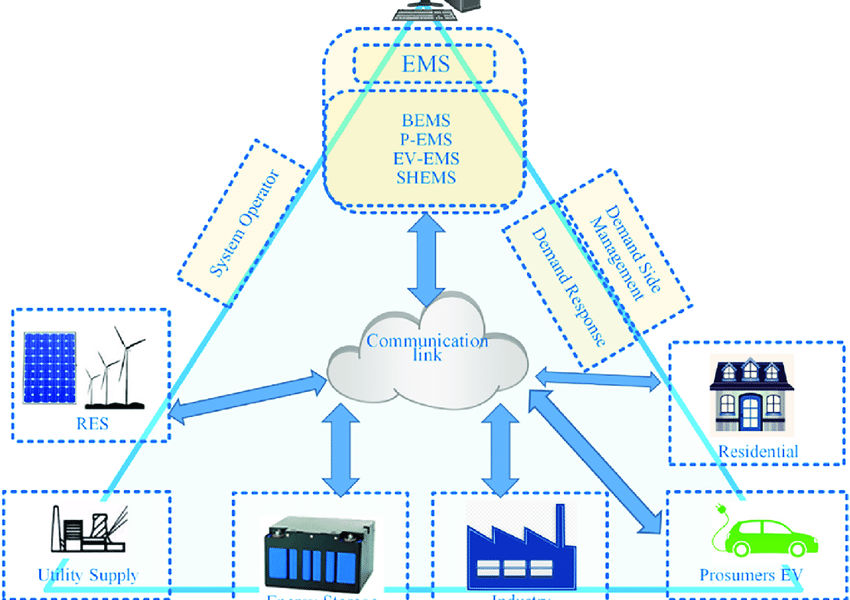Energy Management Systems have become the invisible architects of our daily existence, quietly orchestrating the flow of power that sustains everything from hospital ventilators to smartphone chargers. Behind their technical facade lies a complex story of geopolitical dependencies, environmental trade-offs, and the gradual surrender of local autonomy to centralised digital control.
The Architecture of Modern Power
In Singapore, where every kilowatt must be carefully managed on an island with no natural energy resources, power optimisation frameworks become starkly apparent. The city-state’s Energy Market Authority recently commissioned an enhanced system known as EMS II, designed with “advanced tools and capabilities to monitor and control Singapore’s electricity transmission network.” This technical language obscures a fundamental reality: these smart energy platforms represent a profound shift in how societies organise essential resources.
The human dimension of this transformation becomes clearer when examining Singapore’s regulatory requirements. Under recent amendments to the Energy Conservation Act, companies consuming significant energy must now implement standardised energy control systems or face compliance penalties. This mandate affects thousands of businesses, from manufacturing plants to office buildings, each forced to restructure its operations around the demands of centralised monitoring and reporting.
Factory owners now face immediate compliance burdens:
-
Hiring specialist energy consultants for system implementation
-
Installing expensive monitoring equipment across facilities
-
Submitting detailed quarterly reports to government agencies
-
Restructuring operations around algorithmic efficiency metrics
The promise of eventual cost savings masks an immediate transfer of decision-making authority from local operators to distant bureaucratic systems.
The Singapore Model: Efficiency as Ideology
Singapore’s approach to grid management technologies offers a particularly revealing case study in how technical solutions become embedded with political assumptions. As Chief Executive Ngiam Shih Chun of the Energy Market Authority explained, “As Singapore transforms our energy sector, more renewable energy sources such as solar and electricity imports will be connected to our electricity grid. It is thus critical to enhance our control systems to better manage and ensure the electricity grid’s continued stability.”
This statement, couched in neutral technical language, reflects broader ideological commitments about centralisation, expertise, and control. The assumption that stability requires enhanced control systems is not merely technical but deeply political, privileging certain forms of social organisation. Alternative approaches, such as distributed generation, community ownership, or deliberate inefficiency in service of local autonomy, become unthinkable.
The human costs of this centralised approach manifest in multiple ways:
-
Loss of local control: Communities become dependent on systems they cannot understand, modify, or resist
-
Skilled labour displacement: Traditional maintenance and operation roles are replaced by software-mediated processes
-
Economic stratification: Only large corporations can afford the compliance costs and technical expertise required
-
Cultural homogenisation: Local practices and preferences are subordinated to standardised efficiency metrics
The Promise and Peril of Predictive Control
Singapore’s EMS II system demonstrates the scope of modern energy oversight:
-
Real-time monitoring: Island-wide solar irradiance sensors and satellite imagery
-
Predictive algorithms: Machine learning models forecast solar output fluctuations
-
Automated response: Systems charge and discharge battery storage without human intervention
-
Intelligent alarms: Software synthesises emergency alerts to prevent operator overload
This technical achievement enables grid stability but centralises control in ways that would have been unimaginable a generation ago.
The Singapore model reveals how “EMS II is designed to bolster EMA’s operations and future-proof our grid infrastructure. This helps pave the way to meeting Singapore’s net-zero goals and securing a clean energy future.” This framing positions sophisticated energy management as not merely useful but essential for environmental protection and national security. Opposition becomes not just impractical but morally suspect.
The Hidden Dependencies of Smart Grids
Advanced power control systems create new vulnerabilities:
-
Digital dependencies: Critical infrastructure relies on satellite communications and cloud computing
-
Supply chain risks: International components create geopolitical exposure
-
Algorithmic opacity: Citizens cannot understand how basic services are managed
-
Catastrophic failure potential: Software bugs can cause cascading system-wide outages
Each layer of digital sophistication may be less visible but more catastrophic than the mechanical inefficiencies it replaces.
Environmental Rhetoric and Social Reality
Much advocacy for sophisticated energy management rests on environmental arguments. Singapore’s commitment to achieving “net-zero goals” provides powerful justification for centralised control systems that might otherwise face resistance. Yet environmental benefits come packaged with social costs that receive far less attention in public discourse.
The requirement for companies to implement energy management systems under ISO 50001 standards creates a two-tiered economy where compliance becomes a barrier to entry for smaller enterprises. The National Environment Agency’s assertion that “energy management can be an option you consider” for organisations seeking to reduce consumption obscures the mandatory nature of these systems for larger energy users.
This dynamic, where environmental necessity justifies increased centralisation and regulatory complexity, reflects broader patterns in contemporary governance. Technical solutions become politically unassailable precisely because they address genuine crises, making it difficult to question their social implications without appearing to oppose environmental protection itself.
The Future of Energy Democracy
As Singapore and other nations implement increasingly sophisticated power management systems, fundamental questions about technology, democracy, and human agency demand attention. The efficiency gains and environmental benefits are genuine, but they come with trade-offs often invisible in technical discussions.
Energy systems are never merely technical but always embody particular visions of social organisation. The choice between centralised optimisation and distributed resilience, between expert management and community control, cannot be resolved through technical analysis alone.
Understanding these trade-offs becomes essential as Energy Management Systems continue reshaping the fundamental infrastructure of modern life, determining not just how we use energy but how we organise society itself.





